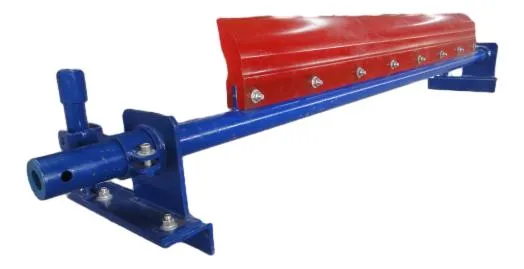 Afrikaans
Afrikaans  Albanian
Albanian  Amharic
Amharic  Arabic
Arabic  Armenian
Armenian  Azerbaijani
Azerbaijani  Basque
Basque  Belarusian
Belarusian  Bengali
Bengali  Bosnian
Bosnian  Bulgarian
Bulgarian  Catalan
Catalan  Cebuano
Cebuano  Corsican
Corsican  Croatian
Croatian  Czech
Czech  Danish
Danish  Dutch
Dutch  English
English  Esperanto
Esperanto  Estonian
Estonian  Finnish
Finnish  French
French  Frisian
Frisian  Galician
Galician  Georgian
Georgian  German
German  Greek
Greek  Gujarati
Gujarati  Haitian Creole
Haitian Creole  hausa
hausa  hawaiian
hawaiian  Hebrew
Hebrew  Hindi
Hindi  Miao
Miao  Hungarian
Hungarian  Icelandic
Icelandic  igbo
igbo  Indonesian
Indonesian  irish
irish  Italian
Italian  Japanese
Japanese  Javanese
Javanese  Kannada
Kannada  kazakh
kazakh  Khmer
Khmer  Rwandese
Rwandese  Korean
Korean  Kurdish
Kurdish  Kyrgyz
Kyrgyz  Lao
Lao  Latin
Latin  Latvian
Latvian  Lithuanian
Lithuanian  Luxembourgish
Luxembourgish  Macedonian
Macedonian  Malgashi
Malgashi  Malay
Malay  Malayalam
Malayalam  Maltese
Maltese  Maori
Maori  Marathi
Marathi  Mongolian
Mongolian  Myanmar
Myanmar  Nepali
Nepali  Norwegian
Norwegian  Norwegian
Norwegian  Occitan
Occitan  Pashto
Pashto  Persian
Persian  Polish
Polish  Portuguese
Portuguese  Punjabi
Punjabi  Romanian
Romanian  Russian
Russian  Samoan
Samoan  Scottish Gaelic
Scottish Gaelic  Serbian
Serbian  Sesotho
Sesotho  Shona
Shona  Sindhi
Sindhi  Sinhala
Sinhala  Slovak
Slovak  Slovenian
Slovenian  Somali
Somali  Spanish
Spanish  Sundanese
Sundanese  Swahili
Swahili  Swedish
Swedish  Tagalog
Tagalog  Tajik
Tajik  Tamil
Tamil  Tatar
Tatar  Telugu
Telugu  Thai
Thai  Turkish
Turkish  Turkmen
Turkmen  Ukrainian
Ukrainian  Urdu
Urdu  Uighur
Uighur  Uzbek
Uzbek  Vietnamese
Vietnamese  Welsh
Welsh  Bantu
Bantu  Yiddish
Yiddish  Yoruba
Yoruba  Zulu
Zulu pu roller
Understanding PU Rollers Applications and Benefits
In today’s fast-paced industrial and commercial environments, the significance of efficient machinery and equipment cannot be overstated. One such crucial component is the PU roller, or polyurethane roller, which plays an integral role across various applications thanks to its unique properties and benefits. This article aims to explore what PU rollers are, their applications, advantages, and why they are a preferred choice in many settings.
What is a PU Roller?
A PU roller is a type of roller made from polyurethane, a versatile polymer that exhibits exceptional durability and resilience. Polyurethane is known for its abrasive resistance, load-bearing capacity, and flexibility. These characteristics make PU rollers suitable for multiple applications, particularly in manufacturing and material handling processes.
Manufactured through various processes such as casting or extrusion, PU rollers can be tailored to meet specific hardness requirements and sizes, accommodating diverse operational needs. Their ability to withstand harsh environments while maintaining consistent performance makes them a popular choice for many industries.
Applications of PU Rollers
The versatility of PU rollers means they can be found in a multitude of settings
1. Conveyor Systems In the manufacturing and logistics sectors, PU rollers are extensively used in conveyor systems. They facilitate the smooth movement of products, minimizing friction and wear on the transported items. Their durability ensures longevity, reducing the need for frequent replacements.
2. Printing Industry PU rollers are crucial in printing applications, where precision is key. They help in the accurate transfer of ink onto various surfaces, ensuring high quality in printing processes. The resilience of polyurethane prevents wear, maintaining the quality of prints over time.
3. Film and Packaging In the packaging industry, PU rollers are employed in film processing and packaging lines. Their ability to handle different materials without damage makes them ideal for this application, leading to improved efficiency and output quality.
4. Textile and Carpet Production The textile industry also benefits from PU rollers, which are used in processes such as dyeing, finishing, and rolling textiles. Their gentle contact prevents damage to delicate fabrics while ensuring even treatment.
pu roller

5. Food Industry Special food-grade PU rollers are utilized in processing plants, allowing for the smooth transport of food products. Their non-toxic properties and ease of cleaning make them suitable for food applications, ensuring compliance with health regulations.
Advantages of PU Rollers
The numerous advantages of PU rollers contribute significantly to their popularity across various industries
1. Durability PU rollers possess exceptional resistance to wear and tear, allowing them to endure heavy loads and long operational hours. This durability translates to lower maintenance costs and prolonged equipment life.
2. Flexibility Unlike rigid rollers, PU rollers offer the flexibility needed to accommodate varying shapes and sizes of products, ensuring smooth and efficient handling throughout the manufacturing process.
3. Reduced Noise and Vibration The elastic properties of polyurethane significantly reduce noise and vibration during operation. This creates a quieter working environment, contributing to better conditions for employees.
4. Customizability PU rollers can be manufactured to meet specific needs in terms of hardness, size, and design, allowing industries to optimize their equipment for maximum performance.
5. Corrosion Resistance Unlike metal rollers, PU rollers resist corrosion, making them suitable for extreme environments where exposure to chemicals or moisture may occur.
Conclusion
In conclusion, PU rollers are vital components in various industrial applications due to their versatility, durability, and performance advantages. As industries increasingly focus on enhancing efficiency and reducing costs, the demand for PU rollers is likely to grow. Whether in the manufacturing sector, food processing, or printing, these rollers provide the necessary support for streamlined operations, making them an essential part of modern machinery. As technology continues to evolve, we can expect innovations in PU roller design and materials, further enhancing their applications and benefits in the future.
-
Revolutionizing Conveyor Reliability with Advanced Rubber Lagging PulleysNewsJul.22,2025
-
Powering Precision and Durability with Expert Manufacturers of Conveyor ComponentsNewsJul.22,2025
-
Optimizing Conveyor Systems with Advanced Conveyor AccessoriesNewsJul.22,2025
-
Maximize Conveyor Efficiency with Quality Conveyor Idler PulleysNewsJul.22,2025
-
Future-Proof Your Conveyor System with High-Performance Polyurethane RollerNewsJul.22,2025
-
Driving Efficiency Forward with Quality Idlers and RollersNewsJul.22,2025





























